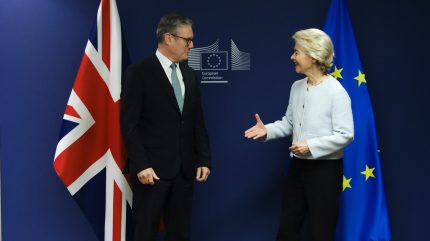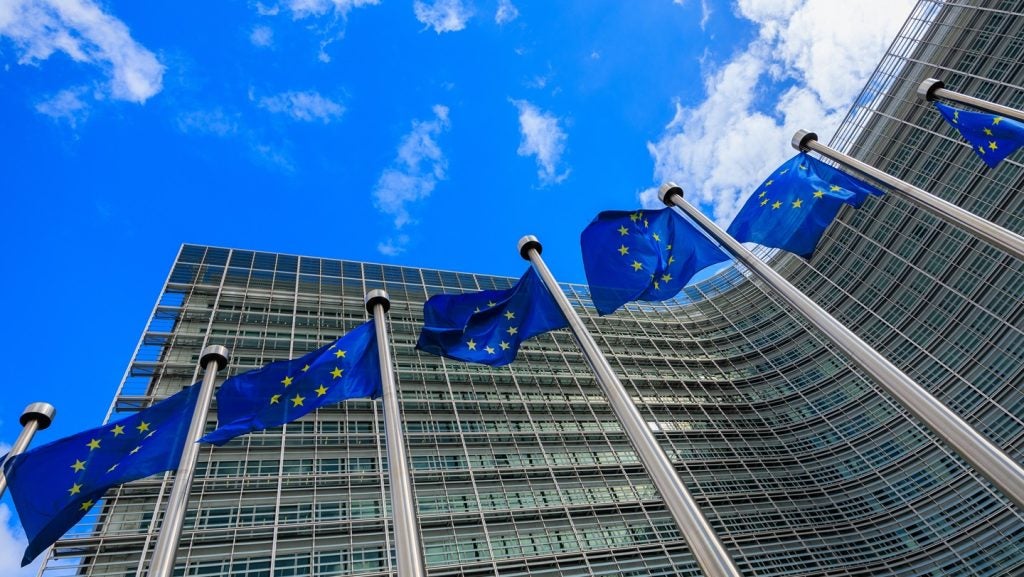
The UK will be limited in its ability to invest into European Union (EU)-related defence programmes to just 35% of its total under a planned new funding initiative, a notable speed bump on London’s public roadmap towards continental rapprochement.
Clubbed into the same bracket as Canada and Türkiye, the UK’s potential investment into a proposed €150bn ($162.1bn) defence loan fund could only increase beyond 35% if London agrees to a separate defence and security partnership with the EU.
Detailed in a 21 March statement from the European Council, President of the European Council, António Costa, and the President of the European Commission, Ursula von der Leyen, debriefed “like-minded” non-EU countries on the Union’s support to Ukraine and wider European defence ambitions.
EU leaders “commended” the initiative by France and the UK to form a “coalition of the willing” aimed at defining the support to the Ukrainian army and the security guarantees that European countries can provide, the statement read.

In addition, it was conveyed that the European Council has agreed that Europe would step up its investment into defence and security programmes, referring to ‘Readiness 2030’, a roadmap aiming to ensure that Europe has a defence industrial base and military capabilities “to act as a credible deterrence”.
To this end, two distinct financial mechanisms for defence investment are being proposed, offering opportunities for countries to invest.
The first – a National Escape clause – will free up to €650bn of fiscal space in the national budgets of EU member states and have no conditions attached in terms of origin of defence equipment.
Dubbed ‘SAFE’, the second mechanism proposed up to €150bn of loans, which also provided the allowance for Norway and Iceland to directly participate, with both countries being members of the EU’s single market. The UK, as with Canada or Türkiye, would be able to “immediately” provide up to 35% of a defence product.
“To increase the industrial participation beyond 35%, a security and defence partnership and a subsequent association agreement are necessary,” the Commission statement read.
Will there be a UK-EU security partnership?
It is likely that London would not have expected a different approach from the EU regarding defence investment; supranational organisations will favour internal single market members over third-party countries.
However, the relatively new Labour government in the UK, moving towards its one-year anniversary since coming to power, has not made a secret of its desire to sign a security pact with the EU, as it looks to ‘reset’ relations that had been adversarial in recent years.
It is not certain how a defence and security pact would change the current Trade and Cooperation Agreement, signed in December 2020 and in force since January 2021, which governs ties between the UK and the EU.
The UK has signed bilateral agreements with France and Germany to progress on defence initiatives in governments across both main political parties, and signed security arrangements with Sweden and Finland, both EU countries, as they sought to join Nato following Russia’s invasion of Ukraine in 2022.

Defence industrial ties between the UK and Germany are particularly strong, with ongoing work in the Eurofighter programmes, the Boxer AFV, the Challenger 3 main battle tank (through RBSL), and the planned acquisition of the RCH 155 artillery system.
In addition, the UK formalised a 100-year partnership agreement with Ukraine, the latter country apparently set on a path towards EU membership, in a sign of the commitment between London and Kyiv.
For the UK, the ability to invest in common European defence programmes, possibly being conducted under the PESCO structure, would provide the commonality that defence officials in Main Building have been promoting.
Similarly, the EU itself would also stand to benefit from UK defence investment, from what is Europe’s second largest defence budget and economy.
Given these factors, the mood music is in favour of a UK-EU pact before long.



